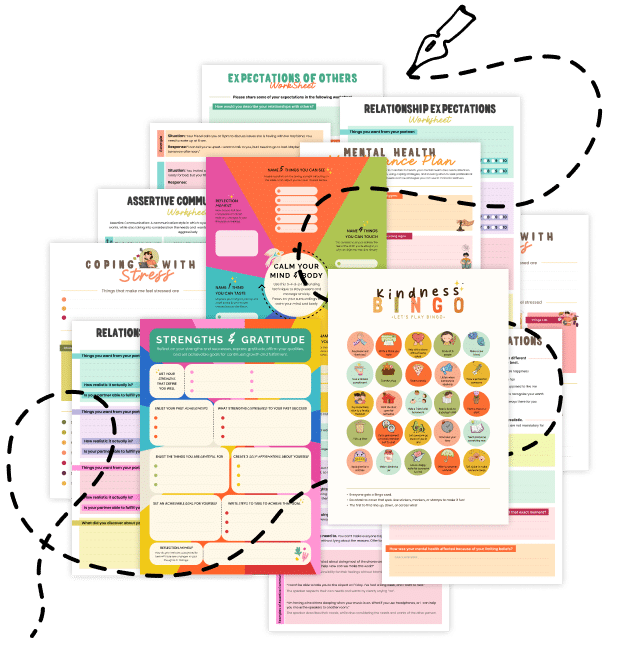20 Things About Reward-Prediction Errors
Dive into the fascinating world of Reward-Prediction Errors—how your brain measures and anticipates rewards—and discover why mismatches between expectation and reality can profoundly shape your motivation, decision-making, and emotional responses.
1. What Are Reward-Prediction Errors?
Reward-Prediction Errors (RPEs) occur when there’s a difference between what you expect to receive (a reward or outcome) and what you actually get. If you predict a reward but get none—or vice versa—you experience an RPE.
2. Dopamine’s Role
Dopamine neurons in the midbrain track reward-related information. When an outcome is better than expected, dopamine spikes. If it’s worse or absent, dopamine activity dips. These changes help your brain update its predictions.
3. Learning Tool
RPEs drive learning by telling your brain, “I need to adjust my expectations.” Over time, this fine-tuning helps you make more accurate predictions about what actions lead to rewarding outcomes.
4. Good Surprises vs. Letdowns
- Positive Error: Getting a bonus you didn’t expect. Dopamine surges, reinforcing the behavior that led there.
- Negative Error: Missing out on a reward you anticipated. Dopamine drops, prompting caution or a revised strategy next time.
5. Habit Formation
Frequent positive RPEs can hardwire actions into habits. If drinking coffee at 3 pm consistently boosts your energy and mood, your brain starts expecting that reward—ultimately prompting the craving or routine.
6. Real-World Examples for Reward-Prediction Errors
- Slot Machines: Casinos harness unpredictable reward schedules, creating strong dopamine-driven cravings.
- Video Games: Loot boxes or random bonus items keep players hooked through sporadic positive surprises.
7. Overconfidence and Errors
Sometimes, you might overestimate a reward (say, expecting high praise for minimal effort). Negative RPE hits, leading to disappointment. Calibration of realistic expectations is key to stable motivation.
8. Underestimating Potential
Conversely, underestimating yourself can lead to pleasant surprises when you exceed your own predictions—boosting dopamine and self-confidence. Strategic “under-promising, over-delivering” can be a motivational hack.
9. Impact on Emotions
An unexpected letdown can trigger frustration or sadness, while a surprise win sparks joy or excitement. RPEs serve as emotional cues, guiding you to adapt future behaviors.
10. Reinforcement Learning
Computer scientists draw on RPE principles in reinforcement learning algorithms—teaching AI to adjust actions based on deviations between expected and actual outcomes (like a digital version of dopamine feedback).
11. Ties to Addiction
Drugs or gambling artificially manipulate reward pathways. Each hit triggers a massive, unearned dopamine spike, creating extreme positive RPEs. Over time, you need bigger or more frequent hits to get the same effect, fueling addiction cycles.
12. Unpredictability Binds Attention
Research shows that unpredictable rewards hook our focus. When you can’t predict a pattern (e.g., random social media “likes”), your brain stays engaged, waiting for that next dopamine bump.
13. Reward-Prediction Errors Role in Personal Growth
Mistakes or failures can be seen as negative RPEs. Embracing them as learning signals—rather than personal failings—pushes you toward improved strategies and resilience.
14. Maintaining Intrinsic Motivation
Not all rewards are external (money, praise). Intrinsic rewards—like personal satisfaction—also elicit RPEs. Setting internal goals, then surpassing them, can steadily strengthen self-motivation.
15. Regulation and Self-Control
Being aware of your own RPE patterns helps you resist impulsive urges. Knowing that dopamine surges might steer you toward short-term gains, you can consciously opt for long-term benefits instead.
16. Emotional Forecasting Errors
Humans often misjudge future rewards. Overestimating how happy a new gadget will make you sets up disappointment. Recognizing this quirk can help you manage expectations and reduce negative RPEs.
17. Reward-Prediction Errors Role in Negotiations
When negotiating, leaving a bit of positive surprise (“I’ll throw in a bonus”) can enhance satisfaction for the other side, thanks to a pleasing mismatch between expectation and outcome.
18. Balancing Feedback in Teams
Managers who give overly optimistic forecasts risk negative RPE blowback when reality falls short. Transparent communication sets realistic expectations, keeping team morale steady.
19. Harnessing Positive Surprises
Plan small, unexpected rewards for yourself—like celebrating minor accomplishments. These pleasant RPEs inject fresh energy into your routine and reinforce good habits.
20. Related Topics to Explore
- Sunk Cost Fallacy Avoidance: Understand how sticking to failing plans often ties into warped reward expectations.
- Framing Effects in Decision-Making: Discover how the way outcomes are presented can shift perceived rewards.
- Inattentional Blindness: Explore why focusing on expected rewards can blind you to unexpected opportunities.
- Positive Disintegration: Learn how disruptions in your usual reward patterns can spur personal growth.
Quick Tips to Manage Reward-Prediction Errors
- Set Realistic Goals: Aim for achievable targets to avoid frequent negative RPEs.
- Track Progress: Use data or journals to monitor outcomes vs. expectations, refining predictions over time.
- Celebrate Small Wins: Surprise yourself with small treats or compliments after minor accomplishments.
- Practice Mindful Delays: Pause before chasing an impulsive reward; let your rational mind check if it’s worth the dopamine hit.
- Embrace Learning Moments: When disappointment strikes, decode it as a signal to adapt, not just a reason to quit.
Understanding Reward-Prediction Errors helps you see how your brain’s natural feedback system guides both big decisions and everyday behaviors. By tuning into these dopamine-driven signals—recognizing and managing the hits and misses—you’ll cultivate better habits, more realistic expectations, and a stronger sense of control over your actions. Share this article with friends or coworkers—help them grasp how a simple mismatch between expectation and reality can shape our lives in surprising ways!


